Changing your oil and oil filter regularly is crucial for your vehicle's engine health. But how often should you actually do it? Let’s dive into the details and explore the best practices for oil and filter maintenance.
The frequency of oil and filter changes depends on several factors, such as your car’s make and model, driving conditions, and oil type. Regular maintenance ensures your engine runs smoothly and lasts longer.
Now that we've established the importance of oil and filter changes, let’s take a closer look at how often these should be done. Read on to understand what experts recommend and why.
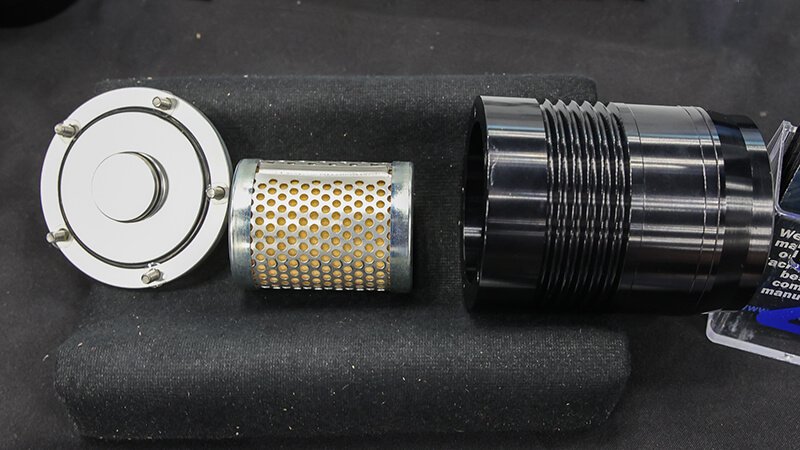
How often should I change the oil and filter?
You’ve probably heard the general advice to change your oil every 3,000 miles, but is that still true in today’s cars? Let’s break down how often you should change both the oil and filter.
The recommended frequency for oil and filter changes varies by vehicle and driving habits. For most vehicles, it’s recommended to change the oil every 5,000 to 7,500 miles, but it could be sooner if you drive under harsh conditions.
The timing of oil and filter changes depends on various factors such as the type of oil you use, the manufacturer’s guidelines, and your driving conditions. Here's a breakdown to help you understand when it's best to change your oil and filter.
Vehicle Manufacturer Recommendations
First and foremost, always check your vehicle's owner manual1 for the manufacturer’s recommendation. Most modern cars can go anywhere from 5,000 to 7,500 miles between oil changes, especially if you're using synthetic oil2. Synthetic oils are designed to last longer, making them a popular choice for many drivers.
For cars using conventional oil, the intervals tend to be shorter, generally around 3,000 miles. However, it’s important to remember that this varies depending on the car and engine type. Some high-performance vehicles may require more frequent oil changes, while others may be able to stretch the intervals.
Driving Conditions Matter
How you drive plays a huge role in determining when to change your oil and filter. If you mostly drive on highways, with fewer stops, your oil will last longer because the engine runs at a consistent temperature, helping prevent oil breakdown.
In addition, if you do a lot of towing3, off-roading, or drive in dusty conditions, your oil and filter may need to be replaced sooner. These conditions put extra strain on the engine and increase the likelihood of contaminants in the oil, which can lead to engine damage if not addressed.
Summary Table: When to Change Oil and Filter Based on Conditions
| Condition | Oil Change Frequency | Filter Change Frequency |
|---|---|---|
| Highway driving (mostly) | Every 7,500 miles | Every 7,500 miles |
| City driving (frequent stops) | Every 3,000 to 5,000 miles | Every 3,000 to 5,000 miles |
| Towing, off-roading, dusty conditions | Every 3,000 to 5,000 miles | Every 3,000 to 5,000 miles |
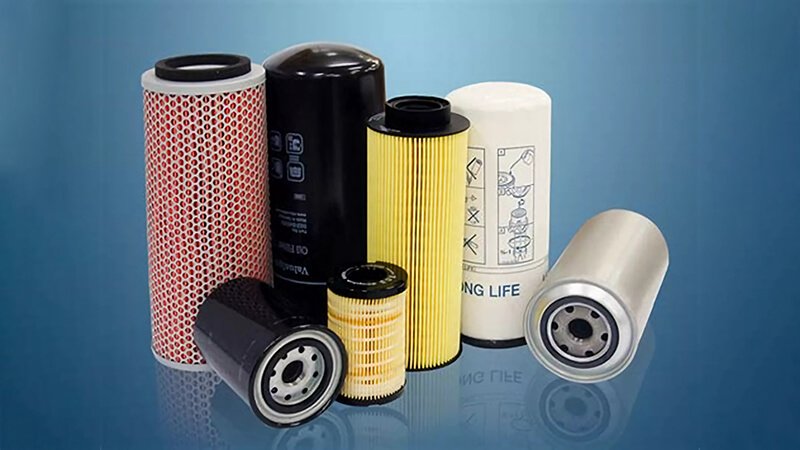
Is it okay to change oil but not filter?
It’s tempting to save a little money by skipping the oil filter4 change, but is it a good idea? Let’s look at whether it’s okay to change the oil5 but leave the filter unchanged.
Changing the oil without replacing the oil filter is not recommended. The oil filter helps to remove contaminants, and if it’s not replaced, it could lead to clogged oil and potential engine damage.
Changing your oil regularly is important, but leaving the old oil filter in place could cause more harm than good. Here’s why:
The Role of the Oil Filter
The oil filter plays an essential role in your vehicle’s engine health. It traps contaminants, debris, and particles that accumulate in the engine oil. If left unchecked, these particles can circulate through the engine, causing wear and damage over time. This is why replacing the oil filter6 during an oil change is crucial.
What Happens If You Skip the Oil Filter Change?
If you change the oil but don’t replace the filter, the filter may still be clogged with debris and contaminants. The new oil will circulate through the engine, but the filter may not be able to effectively clean the oil. This reduces the overall effectiveness of the oil change and could cause your engine to suffer from dirty oil, which leads to reduced lubrication, overheating, and, in extreme cases, engine failure.
In the long run, skipping the filter change could be a costly mistake. The cost of a new filter is small compared to the potential damage to your engine if contaminants are allowed to circulate.
Consequences of Not Replacing the Oil Filter
| Issue | Impact on Engine |
|---|---|
| Clogged Oil Filter | Reduced filtration efficiency, leads to dirty oil circulating |
| Inadequate Oil Circulation | Poor lubrication, increased friction, and engine wear |
| Increased Engine Heat | Risk of overheating, causing long-term engine damage |
| Oil Contamination | Leads to sludge buildup and potential engine failure |
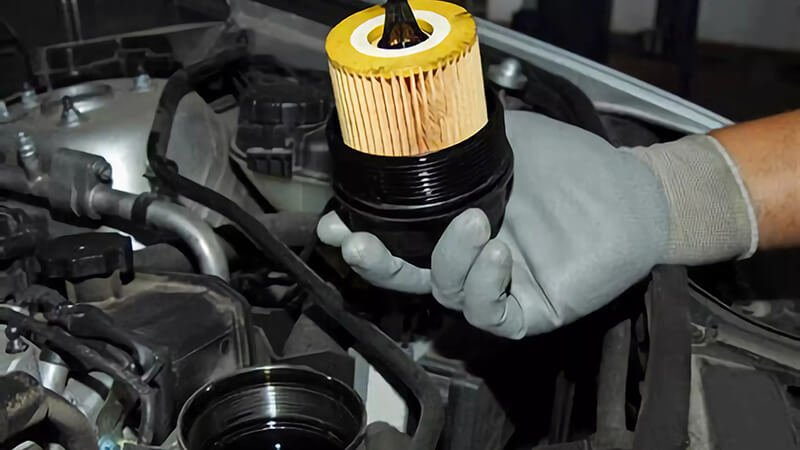
Can an oil filter last 2 years?
Oil filters are designed to last for a specific amount of time, but can they last as long as two years? Let’s take a look at whether oil filters7 can withstand this extended period.
Generally, oil filters should be replaced at least once every oil change, which is typically every 5,000 to 7,500 miles8. While some filters may seem durable, they are not designed to last two years without being replaced.
While oil filters are made to be durable and efficient, they are not meant to last forever. Here’s why oil filters should be replaced more frequently:
Oil Filter Lifespan
Oil filters are typically designed to last for the duration of one oil change, which is usually around 5,000 to 7,500 miles. The filter collects debris and contaminants from the engine oil, and over time, it becomes clogged. If you wait too long to replace it, the filter becomes less effective, and the oil can no longer be adequately cleaned.
Even though some oil filters may appear to last longer, most mechanics agree that you should replace them with every oil change. Running an oil filter for more than 7,500 miles9 or two years puts your engine at risk of dirty oil circulating through the system, which can lead to engine damage.
Long-Term Impact of Old Oil Filters
Over time, the filter media can break down, leading to a drop in filtration efficiency. This means that harmful contaminants will be left in the oil, circulating through the engine and causing premature wear. In some cases, an old or clogged filter can even cause oil pressure problems, further damaging your engine.
Thus, even though oil filters might seem durable, they are not intended to last for years without replacement. Regular oil and filter changes are essential for the longevity and health of your engine.
Oil Filter Longevity vs. Maintenance
| Factor | Duration/Condition | Recommendation |
|---|---|---|
| High-Quality Oil Filter | 5,000 - 7,500 miles | Replace with every oil change |
| Poor-Quality Oil Filter | 3,000 - 5,000 miles | Replace with every oil change |
| Filters Exceeding Lifespan | 2 years+ | Risk of engine damage, should not be used |
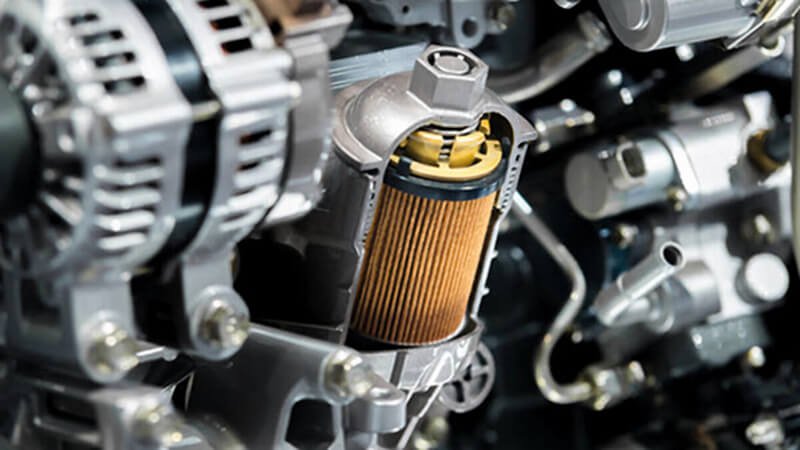
Can I use the same oil filter twice?
Reusing an oil filter might sound like a cost-saving measure, but is it a good idea? Let’s explore why it’s never recommended to use the same filter twice.
Oil filters should never be reused. Once the filter has captured contaminants, it loses its effectiveness. Reusing the same filter could lead to contaminated oil circulating through your engine, causing damage.
Using the same oil filter twice may seem like a simple way to save a bit of money, but it can cause significant issues for your engine. Here’s why:
Why Oil Filters Can't Be Reused
Once an oil filter has done its job, it’s filled with dirt, debris, and contaminants from your engine oil. The filter’s purpose is to trap these harmful particles to keep them from damaging the engine. Over time, the filter media gets clogged with debris, and it loses its ability to clean the oil effectively.
Reusing an oil filter means you're circulating oil that’s still contaminated with particles, which is harmful to your engine. These contaminants can cause increased wear on engine components, leading to premature engine failure.
The Risk of Reusing an Oil Filter
If you attempt to reuse an oil filter, there’s a risk that it could rupture or fail. An old filter can become brittle over time, and the seal may not be as effective as it was when it was new. This can lead to oil leaks or even a drop in oil pressure, which can result in serious engine damage.
In the long run, using the same oil filter twice may end up costing more money in repairs and maintenance. It’s always best to replace the filter with every oil change to ensure optimal engine performance.
Reusing Oil Filters: The Risks
| Risk | Impact |
|---|---|
| Clogged Filter Media | Reduced oil filtration efficiency |
| Potential Filter Rupture | Oil leaks, pressure loss, engine failure |
| Contaminated Oil Circulation | Harmful particles cause engine wear |
| Increased Maintenance Costs | Potential for costly engine repairs |
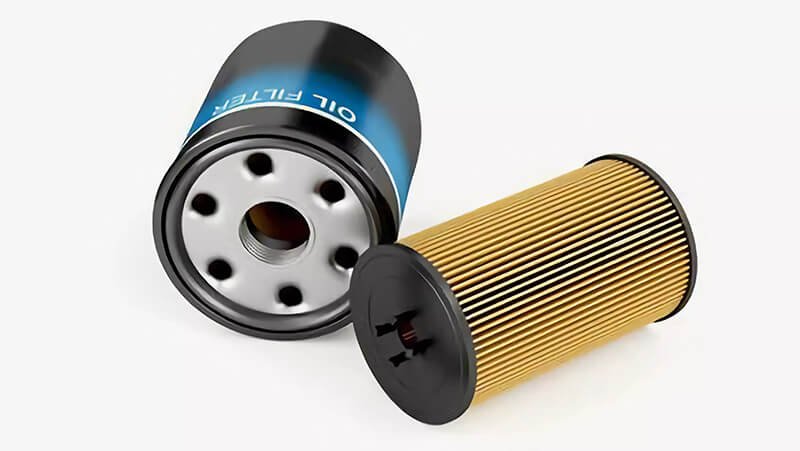
Conclusion
Maintaining your engine's oil and filter is key to keeping your vehicle running smoothly. Regular oil changes, along with timely filter replacements, ensure that your engine is well-lubricated and free from harmful contaminants. Skipping these essential steps could result in expensive repairs down the road, so make sure to follow the recommended maintenance schedule for your vehicle’s oil and filter.
-
Directs the reader to understand the importance of following the vehicle's manual for maintenance guidelines. ↩
-
Provides details about synthetic oils, which are more durable than conventional oils and used in modern cars. ↩
-
Explains the impact of towing on engine health and why oil changes should be more frequent in such cases. ↩
-
Learn about the vital role the oil filter plays in maintaining engine health and performance. ↩
-
Find out the recommended frequency for changing engine oil to keep your car in top condition. ↩
-
Understand the potential risks of not replacing your oil filter during an oil change, and how it can affect your engine. ↩
-
Learn about the function of oil filters and how they protect your engine from contaminants. ↩
-
Understand the recommended intervals for oil filter replacement and why it’s crucial to follow them. ↩
-
Discover the risks of neglecting oil filter changes and how it affects your car’s performance. ↩













